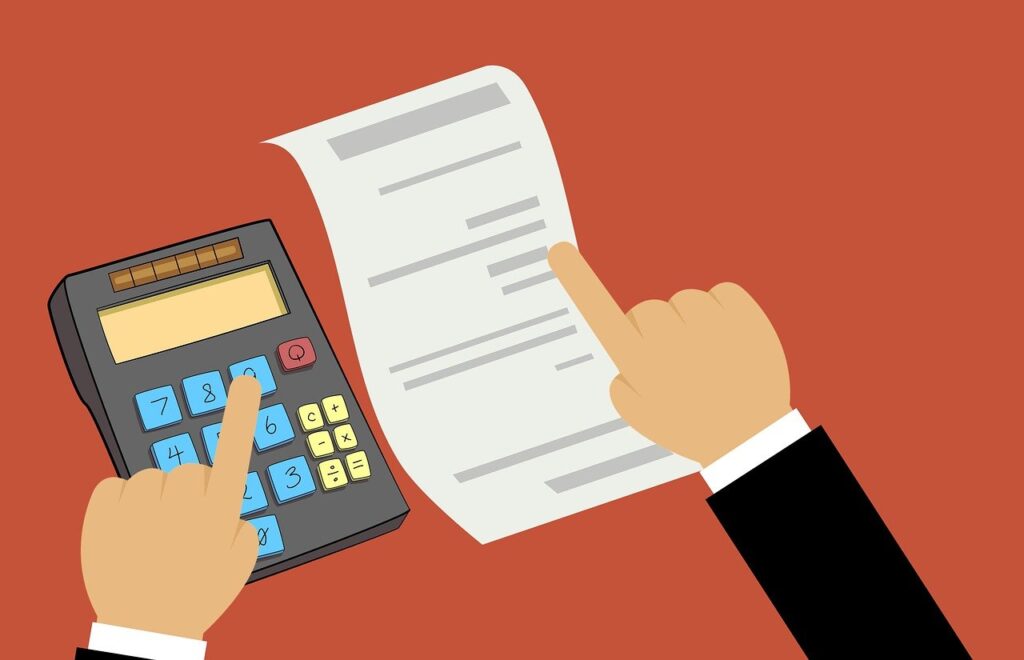eBay, Vinted, Etsy and Depop Sellers New Tax Law, Etsy Scammers and More News
Welcome back, everyone! Did you miss our weekly News Digest? Just before Christmas, we shared the intriguing news about Temu’s App Store rankings challenging Amazon. Did you get a chance to read that article? Now, as we usher in the New Year, we’re kicking off with updates on new seller taxes and Etsy scams. But don’t worry, we’ll conclude on a positive note. Let’s get into it!
Today’s news is 1500 words.
eBay, Vinted, Etsy, and Depop Sellers New Tax Law
In the New Year, online sellers on platforms like Vinted, eBay, Etsy, and Depop who have been avoiding tax could face new regulations under the ‘side hustle tax.’
Having already started from January 1, digital platforms such as Airbnb and Amazon have to share seller information with HM Revenue and Customs (HMRC) as part of a crackdown on tax evasion.
This change aims to level the playing field with traditional businesses and their tax frameworks while also enabling better detection and tackling of tax evasion.
If you make money through renting out your spare room or selling second-hand goods online, this new scheme will apply to you.
UK-based platforms are already complying, while non-UK platforms will share information under the OECD agreement but have until the end of January 2025 to do so.

Additionally, those generating over £1,000 a year from online side hustles must register as self-employed and file a self-assessment tax return at the end of the financial year.
In a nutshell, if you’re:
- Selling handmade or secondhand clothing,
- Delivering food,
- Doing freelance work,
- Subletting short-term accommodation,
- Or subletting your driveway parking,
You have to register as self-employed and pay taxes at the end of the tax year.
What does it mean for eCommerce sellers?
These regulatory changes highlight the need for eCommerce sellers to be proactive in understanding and adhering to tax laws and financial regulations. Staying informed and compliant not only ensures legal adherence but also positions sellers to adapt effectively to an evolving economic environment, ultimately contributing to a more equitable and sustainable marketplace.
MORE: How much does eBay take from a sale?
Big Retailer News
Etsy Scammers
Scammers are targeting new Etsy sellers by posing as Etsy employees and engaging in unauthorized activities. What’s puzzling is how these fraudsters seem to identify sellers as soon as they register on the platform. Reports from victims suggest that this issue may be more widespread than initially thought.
- One seller, who registered on December 26, 2023, reported an unauthorized charge of $578.78 by “Etsy support” on the same day she signed up.
- Another seller, who started their Etsy store recently, received multiple messages from accounts with names resembling Etsy’s, asking for information to complete their first sales.
- A third seller, also new to Etsy, encountered a credit card scammer posing as “Etsy Support” who engaged in a convincing deception.
The sophistication of these scams raises concerns about whether scammers have found a way to identify newly registered sellers in real time. Etsy’s sellers need to remain vigilant and verify any communication from Etsy thoroughly.
If you have any information or theories about how scammers are targeting new sellers, share your insights to help protect the Etsy community from these fraudulent activities. Remember to stay safe and secure while navigating the world of online marketplace selling.
What does it mean for eCommerce sellers?
For eCommerce sellers, particularly those new to platforms like Etsy, the rise in sophisticated scams targeting them highlights a crucial need for heightened vigilance and security awareness.
The apparent ability of scammers to identify and target new sellers immediately after they register is alarming and suggests a potential vulnerability either in the platform’s security or through external means of obtaining seller information.
MORE: Check out our AI in retail tools.
B2B Digital Commerce Product Protection
Manufacturers entering B2B digital commerce space in 2024 face a new challenge — safeguarding their products and intellectual property on online marketplaces.
As online listings for will-fit replacement parts grow, both industrial retailers and consumers are increasingly exploring these marketplaces, intensifying competition and IP concerns.
For example, a simple search on Amazon reveals numerous will-fit versions competing with genuine branded products, making IP protection more crucial than ever for OEMs (original equipment manufacturers).
To tackle this issue, manufacturers need to take proactive measures to protect their products and services online. There are tools and features available on established B2B marketplaces like Amazon Business that can assist with intellectual property protection.
Amazon Patent Evaluation Express (APEX), a new program for IP owners, aids in enforcing design and utility patents. However, participation in APEX requires joining Amazon’s “Brand Registry” system, which mandates enrolling at least one U.S. trademark. This process streamlines IP protection but comes with specific requirements and costs.
What does it mean for manufacturers?
Manufacturers can defend their intellectual property on B2B marketplaces by embracing proactive strategies and utilizing in-house IP enforcement systems.
While challenges exist in understanding the inner workings of these platforms, taking advantage of available tools can lead to meaningful results without excessive expenses. This ensures OEMs remain ahead of the curve in protecting their valuable IP rights in the evolving world of online commerce.
And what are your opinions on will-fit replacement parts? Is this a new opportunity for sellers or an attack on OEMs? Make sure to leave a comment down below.
MORE: Amazon outsourcing top tips and more news.
Also in the News
- Poshmark’s webinars on hosting live-selling ‘Posh shows.’ eCommerce Bytes.
- Amazon’s controversial e-mail. Inc
International Retailer News
Alibaba’s Text-to-3D Geometry Solution
In text-to-3D modeling, a groundbreaking solution has emerged to overcome the challenges of transitioning from 2D to 3D generation. Alibaba’s team of researchers introduces RichDreamer, a Normal-Depth diffusion model designed to establish a foundation for high-quality text-to-3D geometry generation.
This innovation addresses the complexities created by the absence of a geometric prior and the intricate interplay of materials and lighting in natural images, which have stymied existing methods.
Prior approaches relied on score-distillation sampling (SDS) and 2D RGB diffusion models, leading to instability in optimization due to distribution discrepancies between natural images and normal mapping.
RichDreamer breaks through this limitation by learning a generalizable Normal-Depth diffusion model, effectively describing scene geometry. Trained on the extensive LAION dataset and fine-tuned on a synthetic dataset, the model showcases remarkable generalization abilities.
This research not only sets a new standard in text-to-3D modeling but also opens doors to further advancements, including text-to-scene generation and additional aspects of appearance modeling.
What does it mean for eCommerce sellers?
This innovation is particularly beneficial for eCommerce sellers, as it allows for more realistic and engaging product visualizations, potentially leading to improved customer engagement and increased sales.
RichDreamer’s integration into the Fantasia3D pipeline and its superior performance in both geometry and textured model generation opens new possibilities in product presentation and interactive customer experiences in the eCommerce realm.
MORE: Read about 3D-Printed Chairs: Combining Industries for Huge Profits
China’s Transition Towards Carbon Neutrality
The Cop28 Dubai consensus marks a historic turning point in the global effort to combat climate change. While concerns persist about the sincerity of fossil fuel interests and the survival of small island nations facing rising sea levels, we can’t ignore China’s role in driving the transition towards carbon neutrality.
President Xi Jinping’s commitment to peak carbon emissions by 2030 and carbon neutrality by 2060 has set the stage for China’s leadership in this crucial endeavor.
China’s dominance in renewable energy is unmistakable. The country leads in solar power production, accounting for 85% of the global supply. Not only that, it also holds a 60% share of the wind turbine market and has the world’s largest offshore wind capacity. China is also pioneering wave energy generators and innovative seawater conversion techniques that could mainly help the small island nations.
Notably, China’s hydropower infrastructure is five to ten years ahead of other nations, with advanced technologies such as sensors, robots, big data analytics, and AI.
Despite being the largest consumer of coal, China’s shift towards renewables and a slowing economy should lead to a reduction in coal emissions. The nation’s role in the Belt and Road Initiative and its leadership in electric vehicles and eCommerce highlight its commitment to reducing global emissions.
As we witness the transition from the Oil Age, China, along with the United States and the European Union, plays a pivotal role in this epochal paradigm shift.
What does it mean for eCommerce sellers?
With China leading in renewable energy technology and infrastructure, eCommerce sellers might need to adjust their supply chains to align with greener production practices.
China’s role in global initiatives like the Belt and Road Initiative and its advancements in electric vehicles and eCommerce signal potential collaboration opportunities for eCommerce sellers in new, environmentally focused markets.
Also in the News
- Tesla’s 2023 record sales? SCMP
- Insightful Alibaba statistics. Tech Report
Webinars
For everyone
Various dates: Amazon advertising’s global webinar program continues with 20+ webinars scheduled, covering Amazon Prime Day preparation, sponsored products, sponsored brands, reporting, optimization, and other tips.
Learn more: Amazon.
January 23: How mature is your eCommerce search — are you ready for AI? Learn more: DigitalCommerce360
Available to watch now:
How to sell more with TikTok for Business. Learn more: Bigcommerce
For US sellers
January 10: 15 Minute Breakdown. Learn more: Tinuiti.
February 7: The Amazon and Retail Media Summit. Learn more: Tinuiti
For UK sellers
Various dates: Amazon advertising’s global webinar program continues with 20+ webinars scheduled, covering Amazon Prime Day preparation, sponsored products, sponsored brands, reporting, optimization, and other tips.
Learn more: Amazon.

Leave a Reply